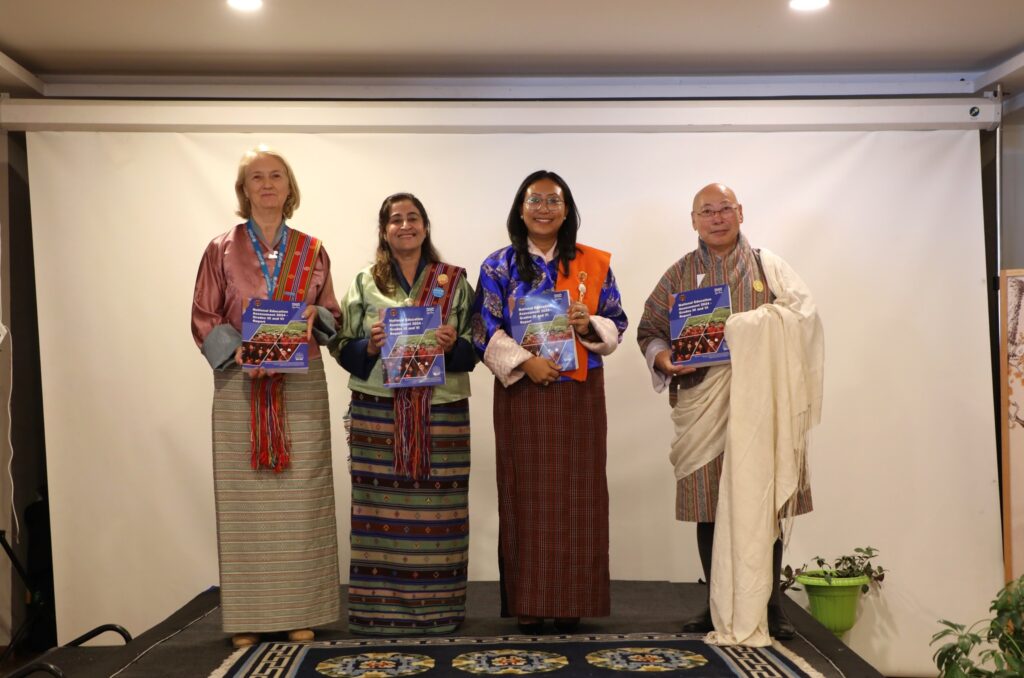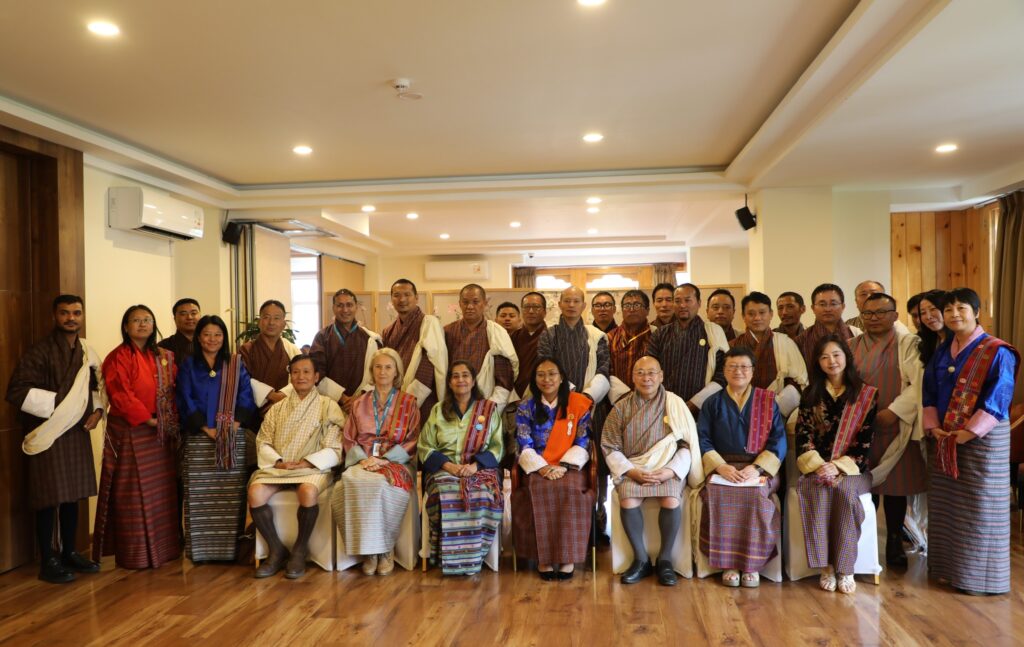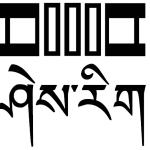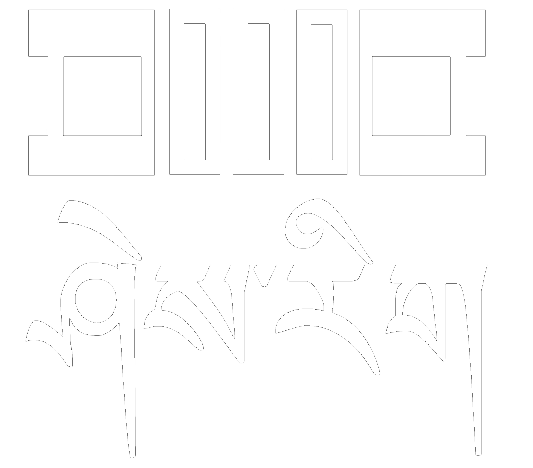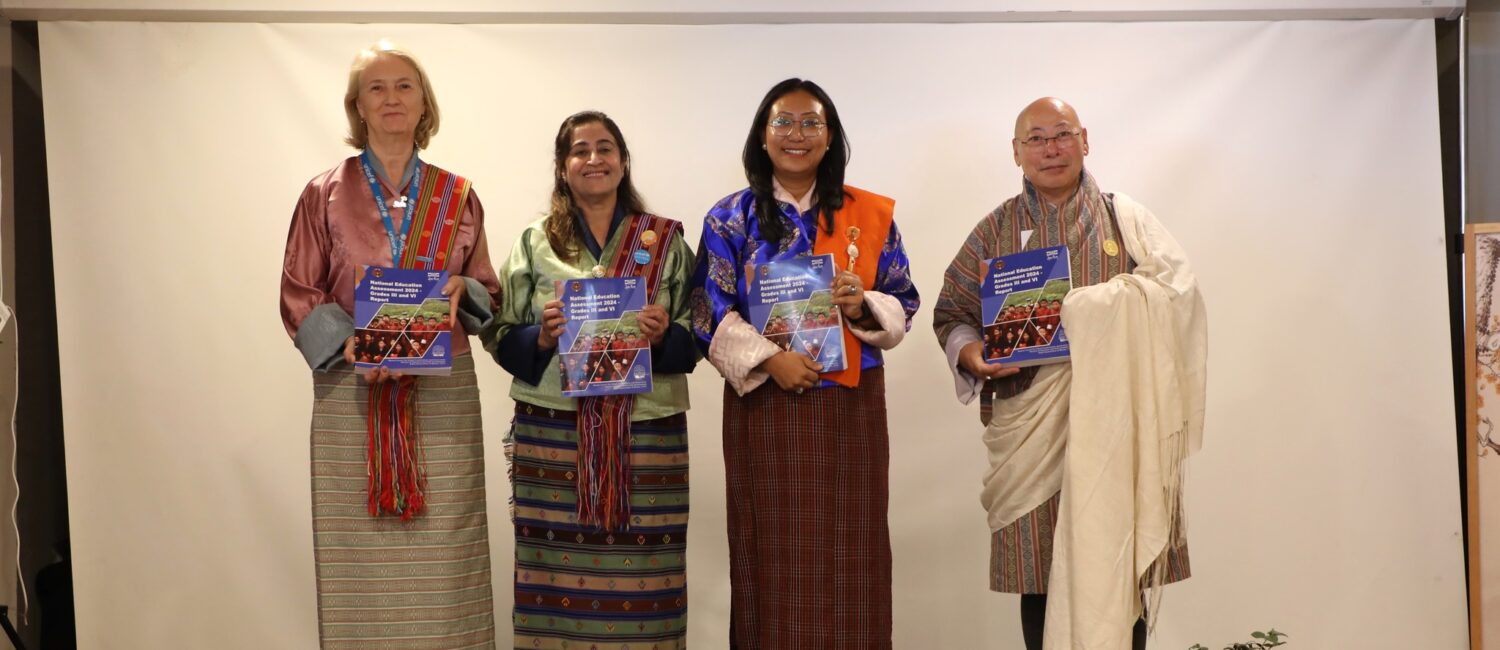The Ministry of Education and Skills Development launched the National Education Assessment (NEA) 2024-Grades III and VI Report today in Thimphu.
The NEA is a triennial, sample-based large-scale assessment conducted at key stages of learning including Grades III, VI and IX to evaluate students’ competencies in foundational subjects.
For Grade III, the focus is on Dzongkha reading literacy, English reading literacy and Mathematical literacy. Grades VI and IX are assessed in Dzongkha and English reading and writing literacies as well as Mathematical literacy and scientific literacy.
In addition, the NEA gathers contextual data on student wellbeing, teaching practices, school conditions and home environments offering a comprehensive picture of Bhutan’s education system.
In November 2024, around 4,633 Grade III students from 183 schools and 4,810 Grade VI students from 198 schools including children with disabilities participated in the NEA 2024 main survey. The schools were selected using proportional random sampling by an international consortium to ensure robust national representation. The survey was also completed by teachers, principals, and Dzongkhag/Thromde Education Officers.
The 2024 NEA report provides critical insights into foundational learning outcomes highlighting student performance trends, learning gaps and systemic strengths. According to the report, in Grade III, English reading literacy shows a notable improvement of 3% while Mathematical literacy shows a modest increase of 2% in 2024 compared to 2021. Dzongkha literacy shows a slight drop in proficiency level as compared to 2021.
The findings in Grade VI reveal that over 90% of students achieved minimum proficiency in English reading and writing, and more than 80% of students reached minimum proficiency in Dzongkha, and over 60% met the minimum proficiency level in Science. Only 36% of students met the minimum proficiency level in Mathematics.
Based on the report, several key priority areas have been identified to guide future education policy and practice in Bhutan. These include strengthening Dzongkha literacy, particularly in the early grades; addressing low proficiency levels in Mathematics and Science at Grade VI; enhancing support and inclusive strategies for children with disabilities and expanding access to Early Childhood Care and Development (ECCD).
The findings emphasise the need to invest in ICT integration and teacher professional development focused on 21st-century skills as well as ensuring sustainable funding and strong national ownership to maintain regular NEA cycles. Further, it highlights that embedding the NEA within Bhutan’s long-term education strategy will be critical to achieving inclusive and high-quality learning outcomes for all Bhutanese children.
During the launch, the Hon’ble Lyonpo said that “The NEA is more than an assessment, it is a testament to our collective resolve to empower every child. The findings will drive policies to enhance teacher training, improve school infrastructure and foster stronger school-community partnerships, ensuring no child is left behind.”
According to Nar B. Raika, Controller of Examinations, “The NEA is more than an academic exercise, it is a national diagnostic tool that tells us where we stand and where we must go. It will help us build a stronger, fairer and more responsive education system.”
The Deputy Representative of UNICEF Bhutan, Fawzia Hoodbhoy highlighted the launch as a reaffirmation of Bhutan’s commitment to giving every child the best possible education.
The report was developed by the Bhutan Council for School Examinations and Assessment (BCSEA) in partnership with Cambridge University Press & Assessment, a globally recognised institution in educational research and assessment, with financial support from the Global Partnership for Education (GPE) and UNICEF Bhutan as the coordinating agency.
This marks the second cycle of Bhutan’s national large-scale assessment initiative. The Ministry launched the first NEA 2021 Grade III Report in March 2023 covering a total of 4,685 grade III students from 184 schools across the country.
Please click the link for Key Findings and to access the NEA 2024 Report: Here
